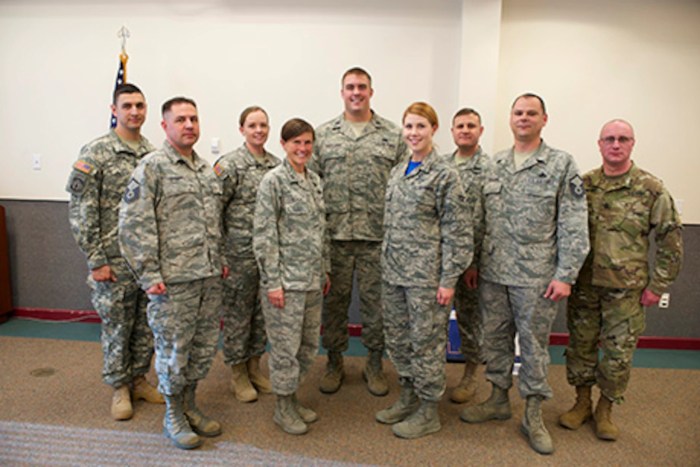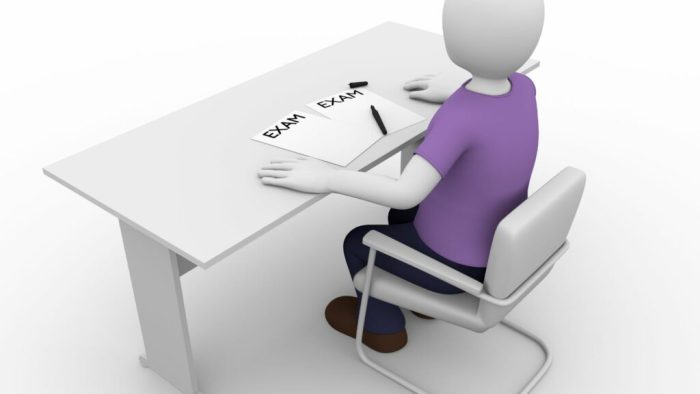Concussion training for service members jko answers – Concussion training for service members is crucial for preventing, assessing, treating, and managing concussions in military settings. This article, “Concussion Training for Service Members: JKO Answers,” provides comprehensive information on all aspects of concussion management for service members.
The content of the second paragraph that provides descriptive and clear information about the topic
Concussion Awareness and Prevention: Concussion Training For Service Members Jko Answers

Concussions are a serious concern for service members, as they can have a significant impact on both physical and cognitive health. It is important for service members to be aware of the signs and symptoms of a concussion, as well as the steps they can take to prevent concussions during military training.
Signs and Symptoms of a Concussion
- Headache
- Nausea
- Vomiting
- Dizziness
- Confusion
- Memory loss
- Balance problems
- Sensitivity to light and noise
Preventing Concussions during Military Training
- Wear a helmet that is properly fitted and meets safety standards.
- Avoid contact with hard objects.
- Be aware of your surroundings and avoid situations where you could be hit in the head.
- Take breaks during training and rest when you are feeling tired.
- Report any head injuries to your supervisor or medical personnel immediately.
Case Studies of Service Members Who Have Experienced Concussions
Service members who have experienced concussions have reported a wide range of symptoms, including headaches, nausea, vomiting, dizziness, confusion, memory loss, balance problems, and sensitivity to light and noise. In some cases, concussions can also lead to more serious problems, such as post-concussion syndrome or even death.
Concussion Assessment and Diagnosis

Concussions can be difficult to diagnose, as there is no single test that can definitively confirm a concussion. However, there are a number of methods that can be used to assess concussions, including:
Methods Used to Assess Concussions in Service Members
- Physical examination
- Neurological examination
- Cognitive testing
- Balance testing
- Imaging tests, such as CT scans or MRIs
Criteria for Diagnosing a Concussion
The criteria for diagnosing a concussion vary depending on the specific assessment method being used. However, in general, a concussion is diagnosed when a service member experiences a head injury that results in at least one of the following:
- Loss of consciousness
- Altered mental status
- Neurological deficits
- Cognitive impairment
- Balance problems
Importance of Early Diagnosis and Treatment
Early diagnosis and treatment of concussions is important to prevent serious complications. If you think you may have a concussion, it is important to see a doctor right away.
Concussion Treatment and Management
The treatment for a concussion depends on the severity of the injury. In most cases, treatment will involve rest and rehabilitation.
Overview of Treatment Options for Concussions
- Rest
- Rehabilitation
- Medication
- Surgery
Role of Rest and Rehabilitation in Concussion Recovery
Rest is essential for concussion recovery. After a concussion, it is important to rest both physically and mentally. This means avoiding activities that could make your symptoms worse, such as exercise, sports, and screen time.
Rehabilitation can also play an important role in concussion recovery. Rehabilitation can help to improve balance, coordination, and cognitive function.
Importance of Cognitive and Physical Therapy
Cognitive and physical therapy can be helpful for service members who are recovering from a concussion. Cognitive therapy can help to improve memory, attention, and problem-solving skills. Physical therapy can help to improve balance, coordination, and strength.
Concussion Education and Training

Concussion education and training is essential for preventing and managing concussions in service members. Education and training can help service members to recognize the signs and symptoms of a concussion, as well as the steps they can take to prevent concussions.
Training Programs Available to Service Members on Concussion Prevention and Management
- Concussion Awareness and Prevention Training (CAPT)
- Concussion Recognition and Management Training (CRMT)
- Concussion Management Training for Healthcare Providers (CMTHP)
Importance of Educating Service Members about Concussions
Educating service members about concussions is important for several reasons. First, education can help service members to recognize the signs and symptoms of a concussion, which can lead to earlier diagnosis and treatment. Second, education can help service members to understand the risks of concussions and the steps they can take to prevent concussions.
Third, education can help service members to make informed decisions about their health care.
Examples of Effective Concussion Education Programs, Concussion training for service members jko answers
There are a number of effective concussion education programs available for service members. These programs typically include information on the signs and symptoms of a concussion, the risks of concussions, and the steps service members can take to prevent concussions.
Concussion Research and Advancements
Concussion research is ongoing, and there are a number of new developments in concussion diagnosis and treatment. These developments include:
Latest Research on Concussions and Their Impact on Service Members
- New imaging techniques that can help to diagnose concussions more accurately
- New treatments that can help to improve concussion recovery
- New guidelines for concussion management
Role of Technology in Concussion Diagnosis and Treatment
Technology is playing an increasingly important role in concussion diagnosis and treatment. For example, new imaging techniques can help to diagnose concussions more accurately, and new apps can help to track concussion symptoms and progress.
Information about New Developments in Concussion Management
There are a number of new developments in concussion management, including new treatments and new guidelines. These developments are helping to improve the care of service members who have experienced a concussion.
FAQ Corner
What are the common signs and symptoms of a concussion?
Headache, dizziness, nausea, vomiting, confusion, memory loss, and difficulty concentrating
How can concussions be prevented during military training?
Proper training techniques, use of protective gear, and avoiding unnecessary risks
What is the importance of early diagnosis and treatment of concussions?
Early intervention can prevent long-term complications and improve recovery outcomes
What role does cognitive and physical therapy play in concussion recovery?
Cognitive therapy helps improve memory, attention, and problem-solving skills, while physical therapy focuses on balance, coordination, and motor function